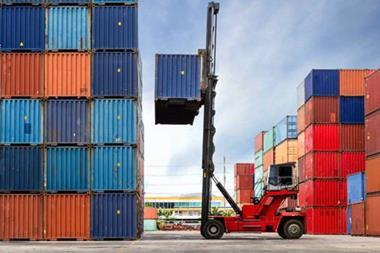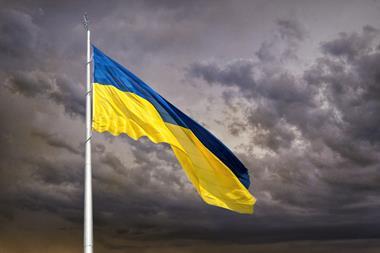Conflict calls for a strategic re-evaluation of footprints, supply chains, relationships, company cultures, business functions and risk appetite
Even before the Ukraine Russia conflict, political risk had been rising ever higher on company risk registers. Despite this awareness, the impacts of political or geopolitical shocks to business have often been perceived as limited or localised. Some impacts appeared to be beyond the control of business leaders to manage.
The catastrophic events in Ukraine have shattered such assumptions, and left businesses no option but to respond quickly and decisively.
While the immense human suffering is front of mind, the impact of the conflict in Ukraine on business has been deep and wide. There have been almost-immediate impacts on the safety of people, the resilience of supply chains, sanctions risk exposure and the operational costs associated with rising commodity prices.
Countless companies have had to cease or suspend operations in Russia, the 11th largest economy in the world.
Businesses are also trying to understand the impact of these events beyond the immediate term as it is clear their legacy will be lasting. No sector will go untouched. No part of the world will escape the effects, be they rocketing prices for food and oil; pressures on services and politics caused by migration; changed inflows and asset seizures influenced by sanctions; or a change in access to resources or influence.
The pace of developments will slow, but watch for things that may suddenly change the pace. Europe will be living with active conflict of some kind on its soil long-term. The status of Ukraine will remain contested and the security situation in and around Ukraine will be hostile. Key relationships between impacted states will remain belligerent, combative and militaristic.
Beyond the immediate neighbourhood of Ukraine, societies and businesses have only just begun to feel the implications of this crisis. These implications will manifest in higher political risk, everywhere. So, what can you do?
In our experience, early and meaningful strategic examination of emerging and political risk issues is key to demonstrating resilience and to responding effectively to shock events – whether a pandemic or a large-scale conflict at the heart of Europe.
When trying to make sense of the unfurling disaster in Ukraine, the questions we are recommending our clients address now include:
Geopolitics
- How do the EU and NATO approach deeper integration with existing members or geographical expansion?
- How does China consider its position towards Russia, Ukraine, and other countries - particularly if it becomes an outlier towards Russia?
- How does the economic, political and security influence of China, Europe, Russia, and the US change in the Arctic, Eastern Europe, and Central Asia?
- Where else or about what else will private sector organisations be pushed to take a stance, and how sustainable will these positions become?
Global economics
- How does the imposition of sanctions change countries’ approaches to the use of US Dollars?
- How significant can the disruption to energy, agricultural commodities, and precious metals be to (i) the stability of different countries, and (ii) companies’ supply chains?
- How can countries and companies adapt to the disruption to supply chains and more inflationary pressures?
European domestic policies
- How do increased immigration, more inflationary pressures, and a regional war affect countries’ stability and policy priorities?
- Which areas of policy and public spending do European governments deprioritise due to increased defence spending?
- How do countries reconceive their energy security and energy mix?
- How do countries adapt to changes to the supply of other commodities?
Bedding in resilience
Businesses are grappling with these questions as they simultaneously and hurriedly re-evaluate their approaches to the management of political risk, and emerging risk.
The succession of events such as Brexit, the election Donald Trump as US President, the pandemic, and now Ukraine, make it clear that political risk events typically seen as low likelihood but high impact demand closer attention in the board, and more engagement beyond the board too.
It is also clear that for some businesses, there will need to be a strategic re-evaluation of footprints, supply chains, relationships, company cultures, business functions and risk appetite to ensure resilience in a world that will be profoundly changed by the Ukraine conflagration.
Businesses are operating in a world reawakened to the significance of understanding and managing political risk. What is more, businesses are being held to account for positions they are taking in response to political risk events more than ever before. The rush of Western companies fleeing Russia is testament to this trend.
Adopting a position on a geopolitical risk issue can be complex and consequential in ways that may not be immediately well-understood. It requires careful consideration, particularly for global companies doing business in an increasingly polarised and hostile international environment.
Navigating this new political risk environment requires a programmatic approach that bring structure, clarity and all available expertise. At Control Risks we organise client programmes into eight clear actions - four for the immediate term and two for the longer term:
| Immediate term |
|---|
| Identify and prioritise issues to address based on their exposures and operations globally |
| Understand the impact to their business of events in Ukraine over specific timeframes |
| Develop scenarios and understand their implications |
| Add capacity to teams by embedding political risk analysts and country expertise |
| Longer term |
|---|
| Develop political risk management tools & processes |
| Ensure they are embedded into day-to-day risk management by effective implementation and training on political risk |
| Monitor political risk events and scenario triggers on a continuing basis |
| Add capacity to teams by embedding political risk analysts and country expertise |
Claudine Fry is principal at Control Risks




















No comments yet